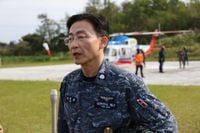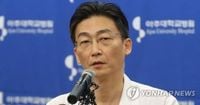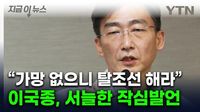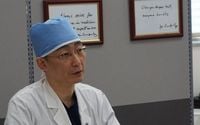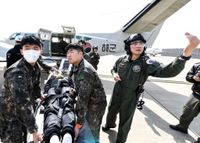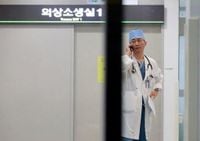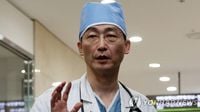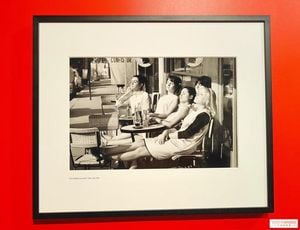Lee Guk-jong, the head of the Armed Forces Daejeon Hospital, has made headlines for his strong criticism of the Korean medical system during a recent lecture aimed at military officers. The lecture, which took place on April 14, 2025, at a training center in Goesan, North Chungcheong Province, has sparked significant discussion online, particularly after a post titled 'Lee Guk-jong Professor's Lecture for Military Officers' circulated in various online communities.
During his address, Lee did not hold back, stating, "Joseon Peninsula is a country where only those with power exploit others. This is the DNA of the Joseon Peninsula that has continued for thousands of years." He lamented the historical context of invasions, including the Imjin War and Byeongja Horan, to emphasize his point about the entrenched issues within the system.
Lee explained that he reluctantly accepted the invitation to speak, saying, "I didn't want to come here. I had nothing to say to my juniors. The principal came all the way to the hospital and asked me to give the lecture because I am also an employee receiving a salary from the Ministry of National Defense." This admission reflects his ambivalence about the state of the medical community and the pressures he feels as a senior figure in the field.
One of the most poignant moments of the lecture was when Lee spoke about his former colleague, Professor Yoon Han-deok, who tragically passed away from overwork while serving in the trauma surgery department. Lee expressed deep sorrow, stating, "I worked in trauma surgery, but there was nothing left. My life is ruined. Professor Yoon, who worked with me in trauma surgery, died from overwork. Don't become like that." His comments serve as a stark warning to the next generation of medical professionals about the harsh realities they may face.
Lee also addressed the issue of essential medical departments, advising prospective medical officers, "Don't even think about working in vital departments if you want to survive, as you'll be exploited like crazy by professors and staff at large hospitals like Seoul National University Hospital and Severance." This statement underscores his belief that the current system is unsustainable and detrimental to the well-being of healthcare workers.
In a moment of both pride and irony, Lee shared that a military officer from the Armed Forces Daejeon Hospital had recently passed the USMLE (United States Medical Licensing Examination) Step 1. He remarked, "I even got him a placard. There is no hope in Joseon, so if you have the skills, you should leave Joseon." This statement, while celebrating a success, also highlights his bleak outlook on the future of the medical field in Korea.
Lee's criticisms extended to the broader healthcare system and the role of large hospitals. He stated, "Professors are middlemen. Big hospitals make money by applying urethane to walls and building escalators, so if ordinary people raise the fees, they're only interested in attracting customers." His remarks suggest a deep frustration with the priorities of major medical institutions and their focus on profits over patient care.
Furthermore, Lee expressed disappointment regarding the ongoing conflicts within the medical community, particularly between returning specialists and those who have not returned to practice. He noted, "I thought there would be a big fight between the returning specialists and the doctors who aren't, but it's pathetic to see them playing around to that extent." This comment reflects his perception of a lack of urgency and seriousness in addressing critical issues within the medical profession.
Lee's lecture has resonated with many, prompting reactions from netizens who expressed concern about the state of the medical system. Comments such as "If Lee Guk-jong is that bad, then it's a real problem" and "It's even more absurd that someone who used to do essential healthcare is now saying 'don't do it'" indicate a widespread sense of unease about the future of healthcare in Korea.
As the discussion continues, it is clear that Lee Guk-jong's frank and critical remarks have opened a necessary dialogue about the challenges facing the Korean medical community. His insights, grounded in personal experience and professional observation, highlight the urgent need for reform in a system that many believe is failing its practitioners and patients alike.
